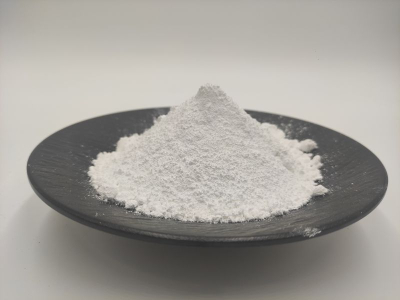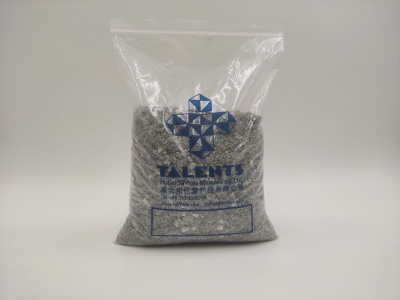Plastic Grade Precipitated Barium Sulphate
Plastic Grade Precipitated Barium Sulphate is a crucial inorganic filler in the plastics industry, with the chemical formula BaSO₄. It features a small particle size, high transparency, excellent dispersion, and good resistance to acids, alkalis, and heat. When added to plastics, it can enhance various mechanical properties, improve surface gloss, dimensional stability, and reduce color changes. It has a good affinity with different resins and is suitable for a variety of plastic materials, helping to increase the filling amount and reduce costs.
Product Name:Plastic Grade Precipitated Barium Sulphate
Product Abbreviation:Plastic Grade Precipitated Barium Sulphate
Supply Capacity:1000MT/Per month
Delivery Time:Within 15 working days after payment
Product Weight:25kg/bag
Plastic Grade Precipitated Barium Sulphate: Overview and Applications
Plastic grade precipitated barium sulphate is a high-performance filler material widely used in the plastics industry. It is a white, inorganic powder with a high density and excellent chemical stability. This form of barium sulphate is specifically designed for use in plastic formulations, offering several advantages such as enhanced mechanical properties, improved processing characteristics, and increased durability. Below is an in-depth look at this versatile material, including its properties, applications, and benefits.
1. Properties of Plastic Grade Precipitated Barium Sulphate
High Purity: Plastic grade precipitated barium sulphate is produced through a controlled precipitation process, ensuring a high level of purity and consistency in the final product. This purity is crucial for achieving uniformity in plastic formulations.
High Density: It has a relatively high specific gravity (around 4.0 g/cm³), which contributes to the overall weight of the plastic products. This makes it especially useful in applications requiring a heavy or dense product.
Fine Particle Size: The precipitated form of barium sulphate has an extremely fine particle size, which helps in creating smooth, homogenous blends when incorporated into plastics.
Non-toxic and Chemically Stable: Barium sulphate is inert, meaning it does not react with most chemicals and does not degrade over time. It also doesn’t pose significant health risks when used properly, making it suitable for a wide range of consumer products.
2. Applications of Plastic Grade Precipitated Barium Sulphate
Plastic grade precipitated barium sulphate is utilized in various plastic applications to improve performance and enhance the properties of the final products. Some common applications include:
Masterbatches: Barium sulphate is often used in masterbatch formulations, where it is combined with resins or polymers to create a concentrated mix. These masterbatches can then be diluted into larger quantities of plastic, providing consistent coloring and properties across the final product.
Polymer Fillers: As a filler material, precipitated barium sulphate is used in polymer compounding to increase the weight and volume of plastics without compromising their mechanical properties. It is particularly effective in engineering plastics and PVC (polyvinyl chloride) formulations, where it can improve the dimensional stability and mechanical strength of the plastic.
Paints and Coatings: It is often used in the production of high-quality coatings and paints, providing opacity and better pigment dispersion. The high density of barium sulphate improves the viscosity and flow of coatings, while also enhancing the surface finish.
Plastics for Automotive and Electrical Industries: In automotive and electrical industries, precipitated barium sulphate is used to manufacture plastic components that require high strength, durability, and resistance to heat. Its application helps in producing products like electrical cable insulation, automotive panels, and casings.
Rubber Compounding: In rubber compounding, it serves as a reinforcing filler to improve mechanical properties, heat stability, and processability.
3. Benefits of Using Plastic Grade Precipitated Barium Sulphate
Improved Mechanical Properties: The addition of precipitated barium sulphate enhances the rigidity, tensile strength, and impact resistance of plastic materials. It strengthens the plastic matrix, making it more durable and resistant to wear and tear.
Cost-Effective: As a relatively low-cost filler, precipitated barium sulphate can help reduce the overall cost of plastic formulations without sacrificing performance. This makes it a popular choice for manufacturers seeking to optimize material costs.
Improved Processing Characteristics: The fine particle size of barium sulphate improves the flowability of plastic compounds, facilitating easier processing. It also reduces the amount of polymer needed to achieve specific weight targets, which can enhance the efficiency of the manufacturing process.
Enhanced Surface Finish: The use of precipitated barium sulphate contributes to a smooth and glossy finish on plastic products, making them more visually appealing. This is especially important in industries where aesthetics are a key factor, such as consumer electronics and automotive components.
Opacity and Brightness: When used in coatings or plastic products, barium sulphate provides excellent opacity, enhancing the brightness and whiteness of the final material. This is particularly important for products like white goods, light fixtures, and decorative plastics.
4. Environmental Considerations
Precipitated barium sulphate is generally considered environmentally safe, as it is stable, non-toxic, and does not degrade into harmful substances. However, like any industrial material, it should be handled properly during production and disposal to minimize environmental impact. Recyclability of plastics containing barium sulphate should also be considered, especially in industries where sustainability is a concern.
5. Quality Control and Standards
To ensure optimal performance, plastic grade precipitated barium sulphate must meet rigorous quality control standards. These may include:
Particle size distribution: A narrow particle size distribution ensures better consistency in the plastic material’s appearance and performance.
Purity levels: High purity ensures that the barium sulphate doesn’t introduce any unwanted impurities into the plastic, maintaining its quality and safety.
Appearance: The powder should be white or off-white, with no visible contamination.
Manufacturers typically test for these properties using methods like laser diffraction, X-ray diffraction, and other specialized techniques to ensure the product meets the required standards.
Plastic grade precipitated barium sulphate is an indispensable material in modern plastic production, offering several advantages such as improved mechanical properties, enhanced processing characteristics, and cost-effectiveness. Its versatility spans industries like automotive, electrical, paint, and coatings, making it an essential additive in producing high-quality, durable plastic products. With its stable and non-toxic nature, it provides a safe and reliable option for manufacturers looking to improve the performance and appearance of their plastic materials.
Construction materials: used as concrete aggregate, paving materials, used as shielding material instead of lead sheet in nuclear facilities, X-ray laboratories, etc.
Electronics and optics: used in the manufacture of optical components and window materials due to its high refractive index and optical stability.












